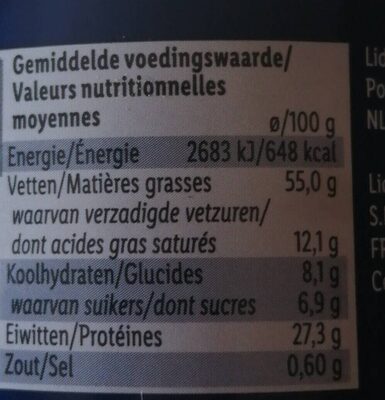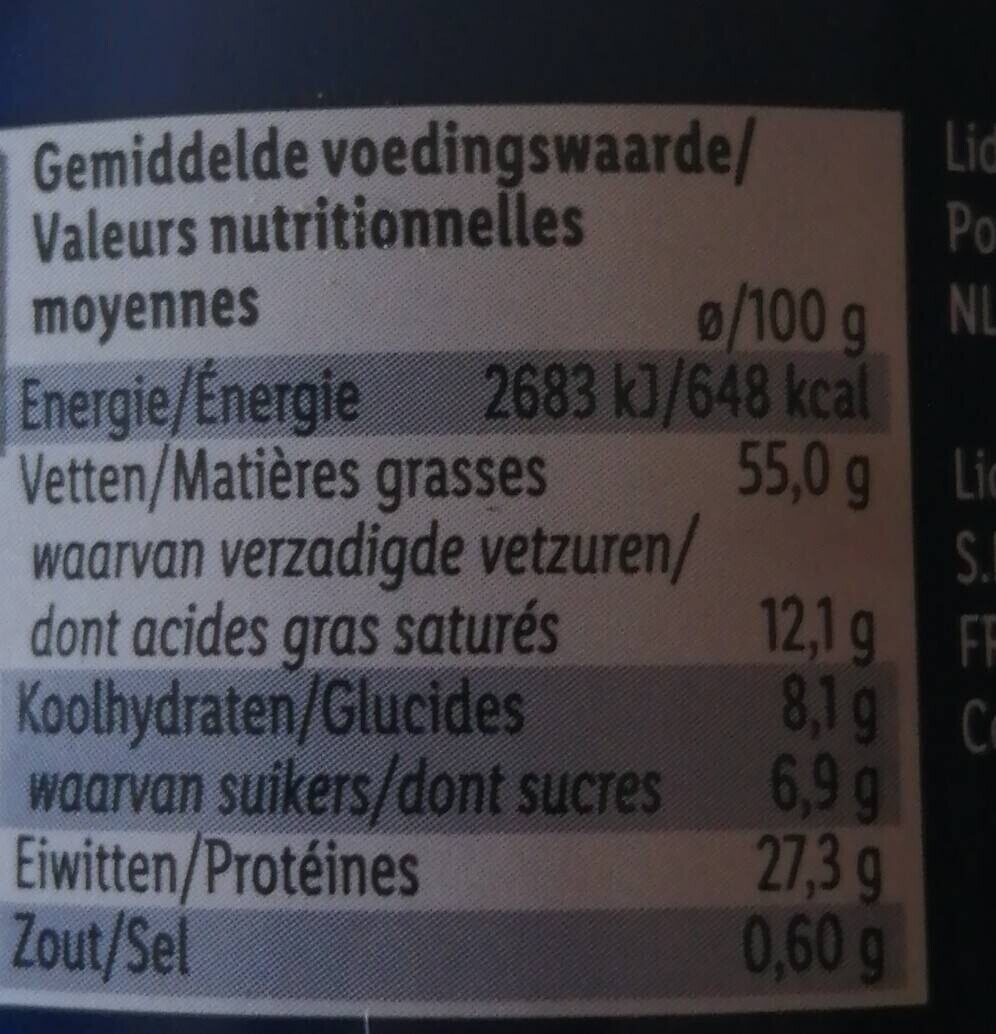Crunchy peanut butter - McEnnedy American Way - 454g
This product page is not complete. You can help to complete it by editing it and adding more data from the photos we have, or by taking more photos using the app for Android or iPhone/iPad. Thank you!
×
Barcode: 4056489424918 (EAN / EAN-13)
Quantity: 454g
Packaging: Plastic, it:Kunststoff, it:PET - Polyethylenterephtalat, it:Polyethylen hoher Dichte
Brands: McEnnedy American Way
Categories: Cacahuetes-sucrees
Labels, certifications, awards: No gluten
Origin of ingredients: India
Manufacturing or processing places: India
Stores: Lidl
Countries where sold: France
Matching with your preferences
Environment
Packaging
Transportation
Report a problem
Data sources
Product added on by kiliweb
Last edit of product page on by chevalstar.
Product page also edited by annelotte, cacahuetes, ecoscore-impact-estimator, elcoco, foodvisor, fpvce93, grumpf, inf, insectproductadd, julien39, jusdekiwi, misterwhite, mstuermer, openfoodfacts-contributors, packbot, prepperapp, roboto-app, rperf, sandman02, scanbot, scarpapazza, smoothie-app, thood, yuka.sY2b0xO6T85zoF3NwEKvlh1nUIrZmxv7DRDnokuCnseMDJ3tQPp-_67rbao, yuka.sY2b0xO6T85zoF3NwEKvlhVYWeTlpwjaDDPRyBOK9t2OPJO5W_Z18qbIGas, yuka.sY2b0xO6T85zoF3NwEKvlkBjasX7n2nbEDjgh32n3_veEYG4ZOlN0qvoaKo, yuka.sY2b0xO6T85zoF3NwEKvlkFuasT-_DjpGQDvwEyE9IzQMLrTcc1cua3XNKg, yuka.sY2b0xO6T85zoF3NwEKvlkZAf9qHqWL9L0XfmXKb1MmqFsHQbOFc67Liaas, yuka.sY2b0xO6T85zoF3NwEKvlmhpD9ffjgnIGQbhgUSGltuFI8TJZ_Bw7dahYqs, yuka.sY2b0xO6T85zoF3NwEKvlnNLUtaOiCn_LyXmm1OW-unQD8z0Uekjw9fAKqs, yuka.sY2b0xO6T85zoF3NwEKvlnZ_d93HgCnAKA3WyWuy4OWMFafuY_Mrz9PFLqg.










